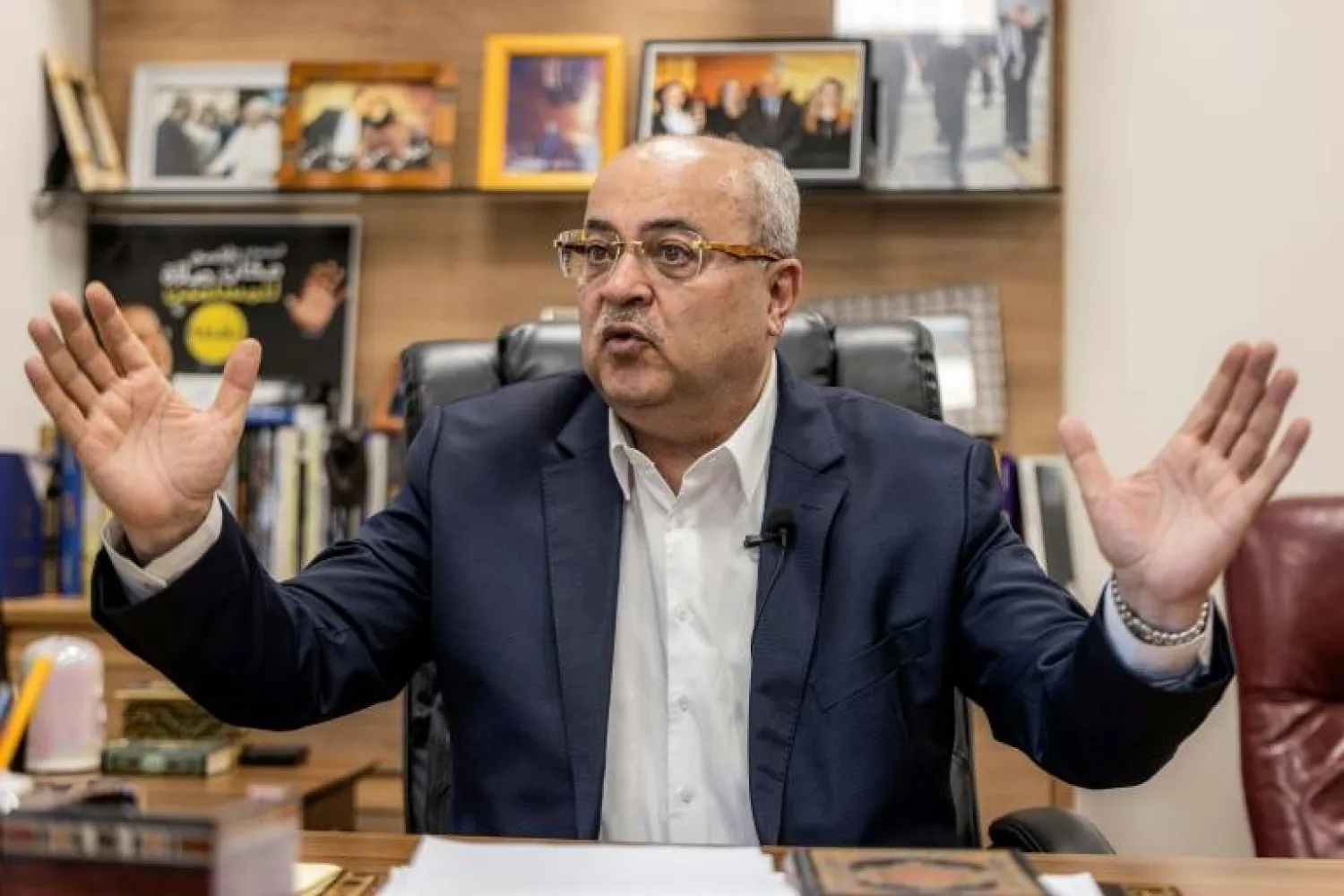In the office of one of Israel's most recognizable Arab politicians, framed pictures show him posing with famous figures like Bill Clinton, Yasser Arafat and Recep Tayyip Erdogan, AFP reported.
In front of Ahmad Tibi's desk is the Arabic slogan, "The more beautiful days are those we did not yet live," which the parliamentarian says is a poignant reminder for his people as they face increased scrutiny after Hamas's October 7 attack.
The attack resulted in the death of 1,195 people in Israel, most of them civilians, according to an AFP tally based on official Israeli figures.
Israel's retaliatory military campaign in Gaza has killed at least 37,765 people, also mostly civilians, according to data from the Hamas-run territory's health ministry.
This has put pressure on Israel's Arab minority, who make up about 20 percent of the population and say they face escalating hate crimes and unjust police action.
"After October 7, hundreds of Arab citizens were hunted down, chased by the Israeli police for writing a post or a story empathising with the children of Gaza or saying no to the war," Tibi, the 65-year-old leader of an Arab-majority party, told AFP.
"It was, and still is, tough days for Palestinian citizens of Israel."
Adalah, an organization advocating for Arab minority rights in Israel, said community members who expressed sympathy for Gazan civilians have been unfairly punished.
Between October 7 and March 27, Israeli police arrested 401 people, the majority Arabs, for speech-related offences it says were tantamount to "incitement to terrorism", its figures showed.
In the same period, there was a total of 667 suspects for speech-related offences -- with only 13 Jewish Israeli citizens compared with 590 Arabs.
"The crackdown on freedom of speech has created a situation in which Palestinian citizens... can neither protest nor freely voice their opinions," it said in a report after October 7.
But Tibi says he and other Arab citizens of Israel were against the October 7 civilian deaths.
"We said here and everywhere that we are against targeting civilians... in the south of Israel -- any child, any woman," he said.
"Meanwhile, we are talking about more than 15,000 Palestinian children killed in Gaza."
Yet in some schools Jewish students have called for the removal of Arab classmates who faced disciplinary procedures, even if some were acquitted.
At one central Israel dormitory protest following October 7, students shouted "Death to Arabs!" and tried to break down doors.
In November, right-wing Israelis protested against a Jerusalem shop employing Arabs.
But the lawmaker -- who says he has lost 13 Gaza relatives to Israeli bombings -- believes anti-Arab rhetoric is not getting the same reaction.
"All those on the Jewish side who called to deport Arab citizens, to kill all Arabs, to destroy all of Gaza... no one was arrested," Tibi said.
Israel's government points to Arab roles in courts, hospitals and parliament as a sign of their acceptance in society.
But in 2018 Israel angered Arabs by adopting a law defining the country as the "nation-state of the Jewish people", and Tibi only sees inequality getting worse.
"After October 7, it was ethnocracy, only for Jews," he said.
Tibi himself faced the ire of Jewish Israelis after October 7.
"I received not tens, but hundreds of threats by ordinary Israelis. When there is a war... everyone is considered to be a legitimate target."
Asked if he fears being attacked, he replied: "No, but I am cautious."
The one-time adviser to former Palestinian leader Arafat criticized Prime Minister Benjamin Netanyahu and far-right ally National Security Minister Itamar Ben Gvir for the worsening treatment of Arabs.
"He's a terrorist, according to the Israeli law," he said of Ben Gvir, a settler convicted of incitement to racism and supporting a terrorist organization over his ties to a banned Jewish extremist group.
Ben Gvir has in turn called Tibi a terrorist and for his removal from parliament over his pro-Palestinian statements.
"The general atmosphere in Israel... it's almost fascist," said Tibi.
But, between dramatic hand gestures, Tibi says he still has hope Jews and Arabs can rebuild bridges.
"I am realistic, but I am optimistic always, because I am on the right side of history," he said.
If the Gaza war ends, he says "democracy is the only way" to solve the crisis, with a Palestinian state that offers full rights.
"It is a natural right for Palestinians," he said.
Switching to Arabic, Tibi had a combative message for his people and their opponents.
"We face attempts at intimidation. We have withstood in the past, and we will withstand this wave of fascism and racism," he said.
"We were here, and we will remain here."









